Wednesday 31st August 2016Spy Booth Mural Destroyed in Cheltenham
Graffiti art automatically comes with an inherent kind of risk. Not only is there the fact that the process is generally regarded as illegal, regardless of how beautiful the resulting work is, but there is the risk that the piece itself won't survive. Even fame and recognition doesn't seem to be a guarantee against these dangers, as the famous street artist Banksy discovered recently.
One of his most famous pieces is located in Cheltenham, Gloucestershire, painted on a the side of a house surrounding a telephone booth. Entitled Spy Booth, it's a critique of the recent revelations of extensive government surveillance and spying that have rocked the world over the last few years.
The choice of location was no accident, as the GCHQ building is nearby, the headquarters of the British government surveillance system. But someone was clearly asleep at the switch when it came time to protect one of Banksy's most famous pieces, for the piece has been removed from its location and destroyed thanks to an unfortunate accident involving an urgent home repair.
Interestingly enough, this isn't the first time Spy Booth has had some trouble. It has suffered numerous vandalism issues, which fortunately were repaired successfully. After the latest danger, the Cheltenham Borough Council decided to grant it retrospective planning consent in 2015, which establishes it as a protected work. In theory, this should make it more difficult to remove - but it can't protect it against accidents.
The council's enforcement manager, Mark Nelson, explains: "We have endeavoured to protect the Banksy as much as possible and to this end the notice required the owner to have due regard for the mural whilst works were being undertaken. We were aware of loose render on that part of the building but the extent and how far it would affect the mural was unknown until work progressed. We would advise anyone against removing any further pieces from the location as this may be classed as a criminal offence."
David Possee, the owner of the house, had reportedly been offered upwards of a million pounds for the artwork, which he declined. Hopefully, this piece can be restored by the council or by Banksy himself, but perhaps it should be regarded as a lesson in the impermanence of the street art medium.
Posted on August 31st 2016 on 10:03pm
0 Comments
Friday 26th August 2016The Emperor Has No.... Umm...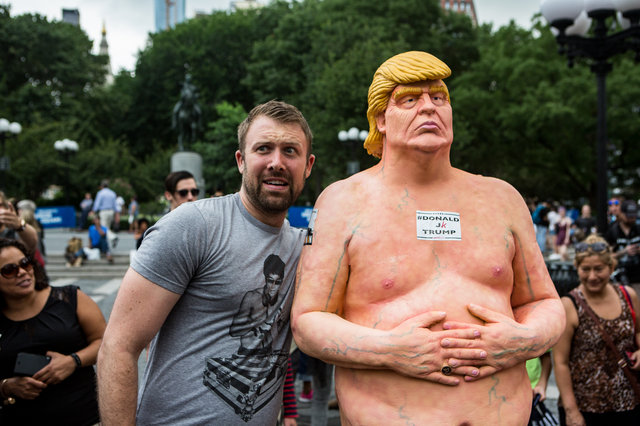 No matter where in the world you live, it's hard not to cringe at the current state of the United States' presidential election runup. Regardless of how you feel about Clinton or any of the third party candidates, it's virtually impossible to take the candidacy of Donald Trump seriously. He's managed to offend virtually every group of voters other than non-college-educated white men, and yet he still manages to capture the airwaves and set the terms of the entire election race. He's been impervious to scandals that would have toppled any other candidate in US history, but he may at last have met his match. Himself, in fact - naked, in parks across America.
No matter where in the world you live, it's hard not to cringe at the current state of the United States' presidential election runup. Regardless of how you feel about Clinton or any of the third party candidates, it's virtually impossible to take the candidacy of Donald Trump seriously. He's managed to offend virtually every group of voters other than non-college-educated white men, and yet he still manages to capture the airwaves and set the terms of the entire election race. He's been impervious to scandals that would have toppled any other candidate in US history, but he may at last have met his match. Himself, in fact - naked, in parks across America.
Courtesy of the anarchist artist collective INDECLINE, life-sized statues of Donald Trump completely naked appeared in many places, including Union Square Park in New York City, Los Angeles, San Francisco, Cleveland and Seattle on August 18th. The likeness is hardly flattering, and the title of the piece apparently is called 'The Emperor Has No Balls' - and, sure enough, the statues seemed to be missing the relevant part of typical male anatomy.
Of course, parks officials across the country were not overly pleased by the guerrilla public art installations, and rapidly began to take them down, despite the hilarious and overwhelming support that they seemed to get from the general public, as you can see in the image on the right. Many more photos were taken and circulated around social media, ensuring that the memory of the statue will live on even after it's earthly presence has been removed.
INDECLINE, the collective who are apparently responsible for the explained their choice of statues. “Like it or not, Trump is a larger-than-life figure in world culture at the moment. Looking back in history, that’s how those figures were memorialized and idolized in their time — with statues.” Their spokesman only commented with the Washington Post on the condition of anonymity, naturally.
To cap it all off, after the New York City Parks Department removed the statue in Union Square Park, eventually NYC Parks spokesman Sam Biederman offered a statement about the event: "NYC Parks stands firmly against any unpermitted erection in city parks, no matter how small."
Ouch. Here's hoping that INDECLINE has managed to puncture the windbaggery that has characterized the Trump campaign, and helped in some small way to save the world from his presidency.
Posted on August 26th 2016 on 06:02pm
0 Comments
Wednesday 24th August 2016On Coupland's Essay, 'What if there's no next big thing?"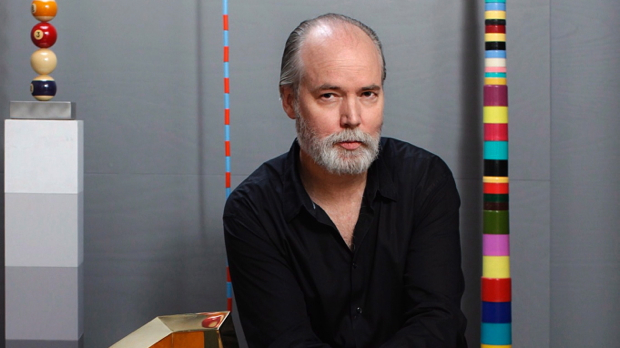
Douglas Coupland is an interesting guy. Whether or not you happen to like the fiction writing he is best known for, he's still an interesting guy to read. His latest short essay is a meditation on the nature of the progression of the art world and how it interrelates with technology. Published in the June 2016 edition of the journal e-flux, issue #74, it's a somewhat rambling but fascinating read.
The main premise, of course, is set out here: "What if there’s no next big thing? There was the Venus of Willendorf and Picasso and Duchamp and then Warhol and then came a hundred thousand highly defended micro-niches so microscopic that they make sense only when looked at in aggregate, like a mole of carbon dioxide molecules or a computer model of butterfly migrations in and out of Mexico: “The Emergent Behavior of Early Twenty-First Century Contemporary Art.” What if the micro-niching of art is art’s last broad stroke? What if art is over?"
It's an interesting premise, one that's near and dear to the hearts of many artists, but Coupland seems intent on assigning the blame (if it can so be called) directly at the feet of technology in the aggregate. To be fair, he admits almost directly that the answer to his question is "probably not", but he seems to miss the reason for the sudden microniche-ing of the art world.
In a world where there are so many people that microniches can survive at all, there's no reason to have a next big thing that everyone gets behind. The technology finally exists, from a connectivity standpoint and from a media dissemination standpoint, to entirely do away with 'next big things' anywhere. The entire premise of 'the next big thing' is dependent on a relatively homogenous society where you can rely on the guy on the other side of the country feeling the same way as you. When you have a human population of over 7 billion, that becomes more and more absurd.
So maybe he was right that there won't be a next big thing after all. But maybe he should be focusing more on the why.
Posted on August 24th 2016 on 05:42pm
0 Comments
Friday 19th August 2016Artist Spotlight: Terence Koh
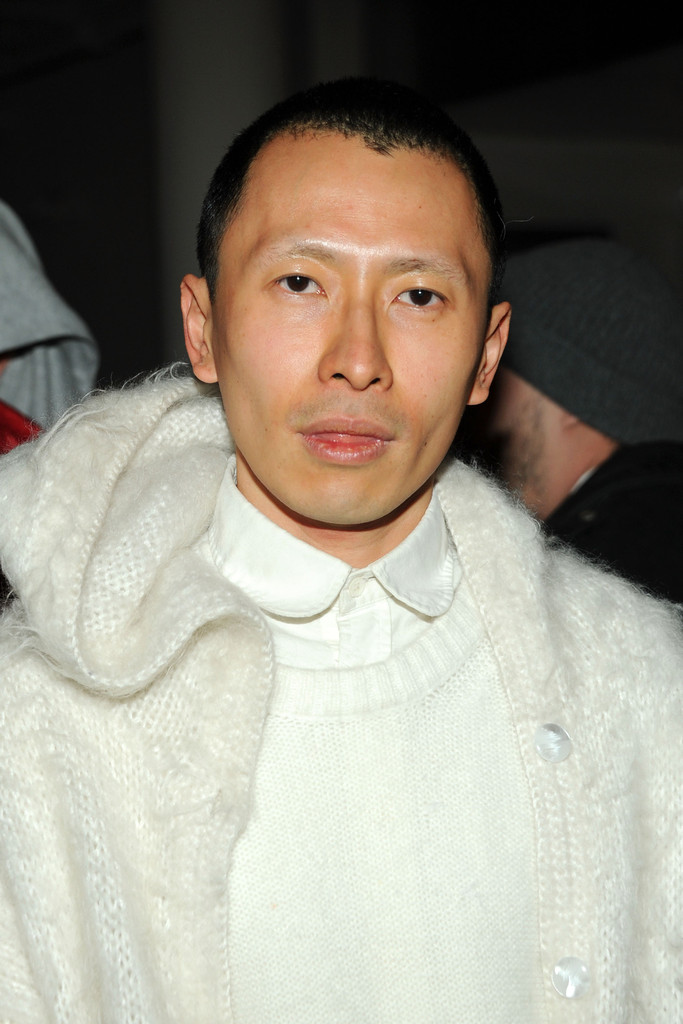
Terence Koh is one of the most famous naughty artists you may never have heard of. Regarded widely as a provocateur and all around bad actor of the art world, he did his very best to earn this reputation. He first made a name for himself during the mid 2000s when the art fair world was really taking off. He went to Art Basel, the grandfather of all the famous art fairs, and gold-plated his own feces.
As if that wasn't enough, he sold said gold-plated objects for roughly half a million dollars US. It sort of boggles the mind.
In 2014, he said in an interview that he was quitting the art world, whereupon he moved to the Catskill Mountains region of New York State where he was quiet for some time. Then, of course, came his return, along with his protestations at this characterization. “I never had any intention of quitting the art world, I just moved to a different part of the world,” he claims, which seems fair enough.
He's back now with two rather important projects, one of which is a performance art recitation and salute to the victims of the horrific shooting in the Orlando gay night club Pulse during June. Koh read the names of each person who was killed or wounded during the massacre, and the recitation was transmitted into outer space via an antenna on the roof of the Andrew Edlin gallery in the Lower East Side neighbourhood of Manhattan.
On a slightly less tragic but equally serious note, Koh's other recent project is an examination of the roles of bees in human civilization, with the installation piece entitled 'Bee Chapel'.
You can see them through the mesh and you can smell them and they’re dropping pollen at you. The hive pretty much vibrates as well,” Koh said in a recent interview with the New York Times. “The idea is I want to be able to resonate with the bees at the same time as the bees are resonating with us.”
Quite a long way to go from gold-plated feces, but a far more interesting direction. Bee Chapel was also on display at the Andrew Edlin gallery, but after an extension to the end of July has now be disassembled. The original piece still lives on in his place in the Catskills, however.
Posted on August 19th 2016 on 05:29pm
0 Comments
Wednesday 17th August 2016The Slow Death of Polaroid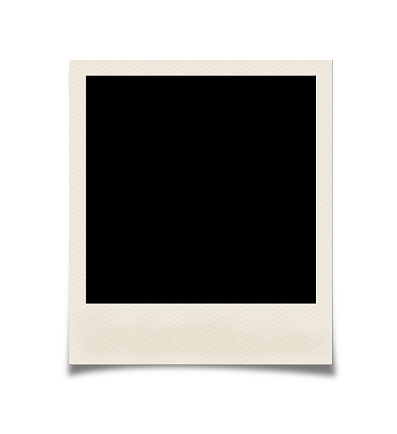
There was a time when the Polaroid was king. It was a household name, although most Millennials will probably never know the name. The company best known for its instantly developing film stock is now relegated to just another digital technology company producing the same types of imaging equipment that can be found from any of a dozen other manufacturers, and the impact of the Polaroid brand has significantly decreased.
The last legacies of Polaroid in the art world are unfortunately winding down as well. During the 1970s a number of massive Polaroid cameras were made to showcase the quality and impact of an ultra-large-format film stock. The cameras and film were revered by artists and photographers, and have been used to photograph everyone from Brad Pitt to U.S. President Barack Obama.
Unfortunately this last glory of Polaroid will soon be coming to an end as well. Chuck Close has worked as both painter and photographer, and uses one of the incredibly large format Polaroid cameras in his work.
“I haven’t given up,” said Close in an interview with the New York Times. “Here’s yet another medium that will be lost to history, and it just shouldn’t be allowed to happen. If it does, I don’t know what I’m going to do, to tell you the truth. It’s so integrated into everything I do. I can always imagine what making a painting from one of those pictures will look like.”
The last manufacturer of the outsized film stock that Close needs to use his eccentrically beautiful camera will be shutting its doors over the course of 2017. John Reuter, the owner of the company, says that the demand simply doesn't exist to continue manufacturing.
"My goal is for people to use the rest of the material we have before all of it is really past its prime. It would be a shame to end that way," says Reuter.
Hopefully the existing images and cameras will be preserved in such a way that they may one day be brought back to life when the economic climate is not quite so harsh, and we once again have the leisure and fortune to appreciate things of esoteric and eccentric beauty.
Posted on August 17th 2016 on 04:31pm
0 Comments
Friday 12th August 2016Has Art Speculation Gone Crazy?.jpg) It wasn't so long ago that we here at Gallereo were completely caught up in the fervour surrounding the latest and greatest auction price records. It seemed like every week there was an incredible new sales figure attached to a piece by a world famous artist, and they were some truly staggering numbers. But after a while, this seemed to grow less and less important, and we began to wonder about how the entire system worked.
It wasn't so long ago that we here at Gallereo were completely caught up in the fervour surrounding the latest and greatest auction price records. It seemed like every week there was an incredible new sales figure attached to a piece by a world famous artist, and they were some truly staggering numbers. But after a while, this seemed to grow less and less important, and we began to wonder about how the entire system worked.
We were left wondering who was buying these pieces for such incredible amounts, and whether or not it was really worth it. It seemed like most of the pieces were never being enjoyed, they were simply chips in a game, an object of value worth what was assigned to it, disconnected from any kind of literal or aesthetic value.
We began to wonder - has art speculation gone crazy?
Roman Kräussl, a professor of finance at University of Luxembourg's School of Finance, thinks so. A recent analysis performed by a team of researchers found that the perception of value for art speculation and the perception of value growth were being significantly exaggerated. This led the researchers to a simple conclusion: buy the art if you like it, but don't expect it to make money for you.
Some financial analysts have been placing the rate of return for art funds at over 10%, when in fact it's much lower at 6.3%, and that the risks associated with art as an investment were significantly under represented.
"If you own a painting, you bear the physical risks and costs, including insurance, damage, and theft or forgery, among others. In short, buy paintings if you like looking at them. You can hope that your children will sell one or more of them later for a gain -- but paintings are primarily aesthetic investments, not financial ones," Kräussl wrote in the press release accompanying the publication of the analysis.
Hopefully, this will signal a shift back to the valuation of art for arts sake, and no longer as tool for billionaires and computer-managed investment funds to move money around the world. Art is made to be appreciated, not to be locked up in a high-tech vault somewhere because it's too valuable to be seen by the public.
Posted on August 12th 2016 on 04:14pm
0 Comments
Wednesday 10th August 2016Swipe Right for Art!

Whether or not you've used it, you've probably at least heard of the popular dating app Tinder. Tinder was a trailblazer in a number of ways, but one of the more unexpectedly popular things to come out of the app was actually a method of user interaction with the app itself. Users are presented with a sequence of potential matches, and they can 'swipe right' to indicate a potential attraction or 'swipe left' to indicate disinterest.
This has given rise to a number of references in popular media of late, but it's also catching on in the wider world of app development. Maybe that should be 'in the Wydr world of app development', actually, since that's one of the signature features of the new app designed specifically for art buyers.
Wydr incorporates the now-popular swipe method of interaction in the way you'd expect. Users are shown a series of art pieces and swipe left or right to indicate their feelings about a piece, and gradually the service develops a profile of the type of work they like. At the same time, it's building a popularity rating for the piece itself as well as the artist, which is then fed back into the database to help determine what will be shown next.
“Our user is a typical Gen X/Y who wants to decide for himself what to like! Wydr changes how people interact with art. No curator, as all artworks are community curated. Artists get feedback on what users like, and users see what’s hot," explained co-founder Matthias Dörner in an interview with popular tech blog TechCrunch.
As they say: Art Galleries are for the 1%, wydr is for the 99%.
The app only launched at the beginning of 2016, but it's already received quite a bit of attention from artists and buyers the world over. Wydr claims to have an active monthly user count of over 10,000, which isn't too shabby for the first six months of activity. Naturally the service will grow in utility as it grows in terms of the artists it represents and the more it learns about user taste, so we'll likely be hearing from them again in the near future.
If you're interested in submitting your own work to be sold through the app, you should know that they charge a whopping 30% commission on pieces sold, but they also help to subsidize shipping costs. This might not seem like much, but the cost of safely shipping a unique piece halfway around the world can quickly mount up.
Posted on August 10th 2016 on 07:41pm
0 Comments
Friday 05th August 2016That's A Wrap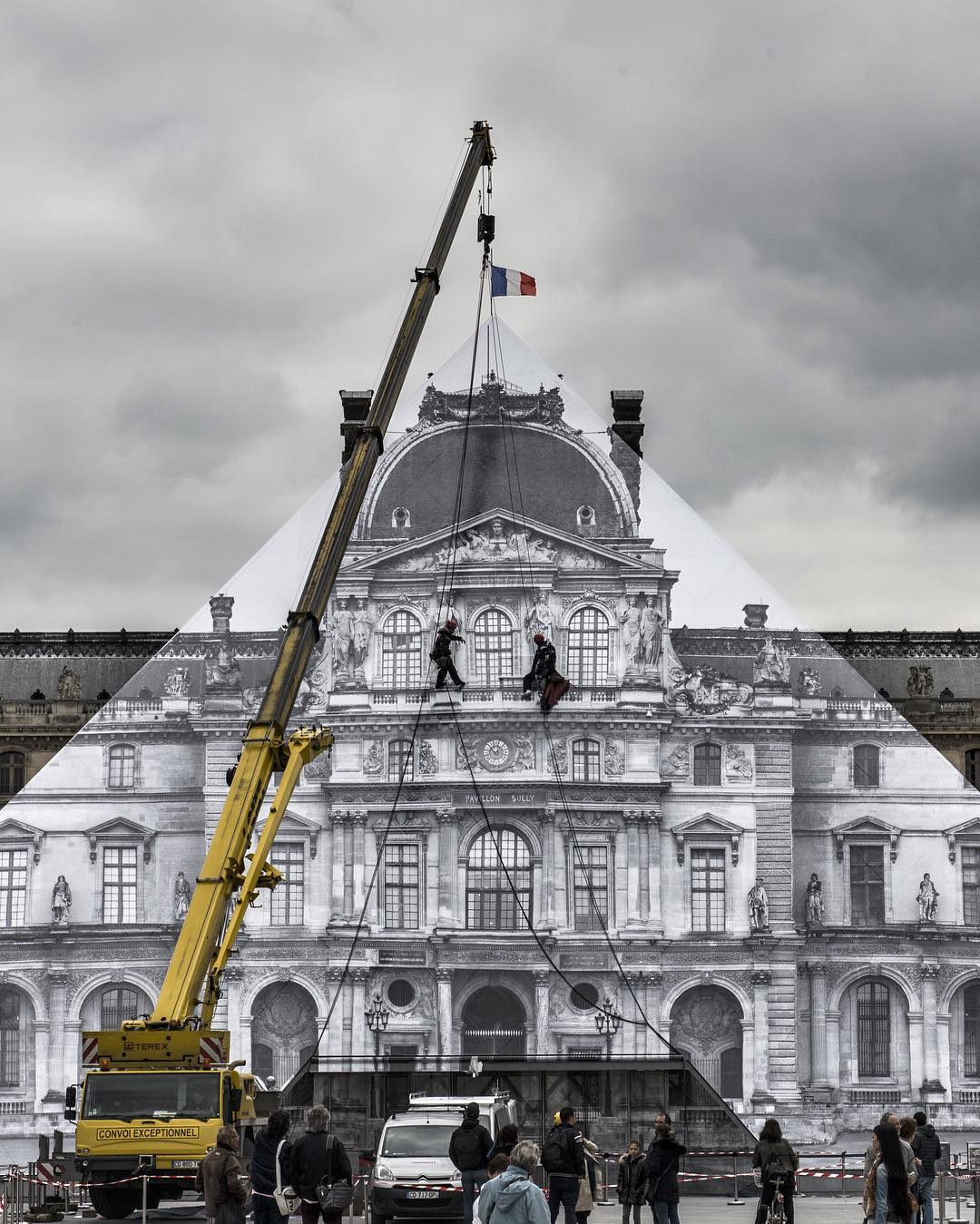
The Louvre is one of the most famous museums in the world both for the impressive quality of its collection and for the iconic Louvre Pyramid that bridges the exterior and the interior of the museum. Designed and installed in 1989 by architect I. M. Pei, the Louvre Pyramid will be disappearing after 27 years of dazzling tourists.
Except, of course, that it wasn't really be going anywhere. Instead, the famous street artist and TED Prize winner JR wrapped each of the glass sections of the pyramid with a huge black and white image of the original Louvre building. When viewed correctly, the photo on the pyramid would align perfectly with the rest of the building, making it seem to disappear.
Unfortunately, though, the exhibit only ran for the month of June and has now been taken down, so apologies on not letting you know while you still had the chance to see it. After all, who doesn't love a good excuse to go to Paris in the summer?
JR grew to fame for his large-scale photos in black and white that appeared surreptitiously in very public places, but this time around, he had the blessing from the Louvre itself.
"By erasing the Louvre Pyramid, I am highlighting the way Pei made the Louvre relevant for his time, while bringing the Louvre back to its original state. The Pyramid is one of the most photographed French monuments. I am re-directing its energy, because people are going to have to move around it. They are going to look for the best angle to get the full impact of the anamorphic image, and really make the Pyramid disappear."
While you can't see the piece in person anymore, you can still marvel at the effect thanks to the Instagram pictures of the piece, as well as any number of images that have been carefully planned to properly recreate the illusion.
From the press release (in French, translated via Google, so apologies for any errors, Francophones!): "JR’s works leave no one indifferent because they are watching, deep within ourselves. His dramatic intervention fashion highlights the question of the role of images in the era of globalization and their multicast, the intimate sphere to mass use. Today prompted by “the greatest museum in the world”, JR sets his sights on one of its symbols, the Louvre Pyramid, to subject it to an anamorphic surprise."
Posted on August 05th 2016 on 07:03pm
0 Comments
Wednesday 03rd August 2016Do You Look Like Van Gogh?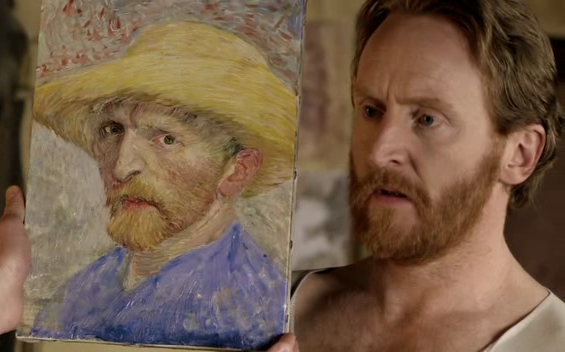
Vincent Van Gogh is one of the most famous painters of all time, and certainly the most famous Impressionist painter. While there is a great deal of controversy over whether or not he was ever photographed, he painted a number of self-portraits that have left us with little doubt about what he looked like.
Aside from the infamous missing ear, probably the most recognizable thing about him is his vivid red hair and haunting (or perhaps haunted) stare. If you have these qualities, albeit with both ears still attached, you may find yourself being rewarded and part of a new art project at the same time.
Canadian author and artist Douglas Coupland is on the hunt for Van Gogh lookalikes from around the world. He's hoping to create a sculpture of the famous artist, and is offering a prize of 5000 euros to the luckiest Van Gogh lookalike.
“I’m learning that most people have someone in their life who looks like Vincent van Gogh. It could be your next-door neighbour. It could be a guy at work. It could be you.” This writer can't think of anyone he knows who looks like Van Gogh, but perhaps that's the exception that proves the rule.
Coupland has set up a website, iamvincent.com, where people from all around the world can submit their images of friends, neighbours, co-workers or themselves to be judged in the lookalike competition. The lucky winner will receive the 5000 euro prize and be flown along with a friend to Vancouver, Canada, where Coupland is based. They will then be scanned in 3D in order to create a detailed model of the Van Gogh replica.
The final output will then be converted into a bronze statue, which Coupland hopes will be the first of many. It's somewhat amusing to consider that the genetics of red-haired people is one of the driving fascinations behind the piece for Coupland, but nobody will be expecting a bronze statue to have the particularly red hair that is one of Van Gogh's signature features.
One wonders if the actor who played Van Gogh in an episode of Doctor Who, Tony Curran, will be entering the competition - he's almost a perfect replica of Van Gogh. It's almost eerie!
Posted on August 03rd 2016 on 06:47pm
0 Comments
 Graffiti art automatically comes with an inherent kind of risk. Not only is there the fact that the process is generally regarded as illegal, regardless of how beautiful the resulting work is, but there is the risk that the piece itself won't survive. Even fame and recognition doesn't seem to be a guarantee against these dangers, as the famous street artist Banksy discovered recently.
Graffiti art automatically comes with an inherent kind of risk. Not only is there the fact that the process is generally regarded as illegal, regardless of how beautiful the resulting work is, but there is the risk that the piece itself won't survive. Even fame and recognition doesn't seem to be a guarantee against these dangers, as the famous street artist Banksy discovered recently. No matter where in the world you live, it's hard not to cringe at the current state of the United States' presidential election runup. Regardless of how you feel about Clinton or any of the third party candidates, it's virtually impossible to take the candidacy of Donald Trump seriously. He's managed to offend virtually every group of voters other than non-college-educated white men, and yet he still manages to capture the airwaves and set the terms of the entire election race. He's been impervious to scandals that would have toppled any other candidate in US history, but he may at last have met his match. Himself, in fact - naked, in parks across America.
No matter where in the world you live, it's hard not to cringe at the current state of the United States' presidential election runup. Regardless of how you feel about Clinton or any of the third party candidates, it's virtually impossible to take the candidacy of Donald Trump seriously. He's managed to offend virtually every group of voters other than non-college-educated white men, and yet he still manages to capture the airwaves and set the terms of the entire election race. He's been impervious to scandals that would have toppled any other candidate in US history, but he may at last have met his match. Himself, in fact - naked, in parks across America. Douglas Coupland is an interesting guy. Whether or not you happen to like the fiction writing he is best known for, he's still an interesting guy to read. His latest short essay is a meditation on the nature of the progression of the art world and how it interrelates with technology. Published in the June 2016 edition of the journal e-flux, issue #74, it's a somewhat rambling but fascinating read.
Douglas Coupland is an interesting guy. Whether or not you happen to like the fiction writing he is best known for, he's still an interesting guy to read. His latest short essay is a meditation on the nature of the progression of the art world and how it interrelates with technology. Published in the June 2016 edition of the journal e-flux, issue #74, it's a somewhat rambling but fascinating read. Terence Koh is one of the most famous naughty artists you may never have heard of. Regarded widely as a provocateur and all around bad actor of the art world, he did his very best to earn this reputation. He first made a name for himself during the mid 2000s when the art fair world was really taking off. He went to Art Basel, the grandfather of all the famous art fairs, and gold-plated his own feces.
Terence Koh is one of the most famous naughty artists you may never have heard of. Regarded widely as a provocateur and all around bad actor of the art world, he did his very best to earn this reputation. He first made a name for himself during the mid 2000s when the art fair world was really taking off. He went to Art Basel, the grandfather of all the famous art fairs, and gold-plated his own feces. There was a time when the Polaroid was king. It was a household name, although most Millennials will probably never know the name. The company best known for its instantly developing film stock is now relegated to just another digital technology company producing the same types of imaging equipment that can be found from any of a dozen other manufacturers, and the impact of the Polaroid brand has significantly decreased.
There was a time when the Polaroid was king. It was a household name, although most Millennials will probably never know the name. The company best known for its instantly developing film stock is now relegated to just another digital technology company producing the same types of imaging equipment that can be found from any of a dozen other manufacturers, and the impact of the Polaroid brand has significantly decreased..jpg) It wasn't so long ago that we here at Gallereo were completely caught up in the fervour surrounding the latest and greatest auction price records. It seemed like every week there was an incredible new sales figure attached to a piece by a world famous artist, and they were some truly staggering numbers. But after a while, this seemed to grow less and less important, and we began to wonder about how the entire system worked.
It wasn't so long ago that we here at Gallereo were completely caught up in the fervour surrounding the latest and greatest auction price records. It seemed like every week there was an incredible new sales figure attached to a piece by a world famous artist, and they were some truly staggering numbers. But after a while, this seemed to grow less and less important, and we began to wonder about how the entire system worked.
 Whether or not you've used it, you've probably at least heard of the popular dating app Tinder. Tinder was a trailblazer in a number of ways, but one of the more unexpectedly popular things to come out of the app was actually a method of user interaction with the app itself. Users are presented with a sequence of potential matches, and they can 'swipe right' to indicate a potential attraction or 'swipe left' to indicate disinterest.
Whether or not you've used it, you've probably at least heard of the popular dating app Tinder. Tinder was a trailblazer in a number of ways, but one of the more unexpectedly popular things to come out of the app was actually a method of user interaction with the app itself. Users are presented with a sequence of potential matches, and they can 'swipe right' to indicate a potential attraction or 'swipe left' to indicate disinterest. The Louvre is one of the most famous museums in the world both for the impressive quality of its collection and for the iconic Louvre Pyramid that bridges the exterior and the interior of the museum. Designed and installed in 1989 by architect I. M. Pei, the Louvre Pyramid will be disappearing after 27 years of dazzling tourists.
The Louvre is one of the most famous museums in the world both for the impressive quality of its collection and for the iconic Louvre Pyramid that bridges the exterior and the interior of the museum. Designed and installed in 1989 by architect I. M. Pei, the Louvre Pyramid will be disappearing after 27 years of dazzling tourists. Vincent Van Gogh is one of the most famous painters of all time, and certainly the most famous Impressionist painter. While there is a great deal of controversy over whether or not he was ever photographed, he painted a number of self-portraits that have left us with little doubt about what he looked like.
Vincent Van Gogh is one of the most famous painters of all time, and certainly the most famous Impressionist painter. While there is a great deal of controversy over whether or not he was ever photographed, he painted a number of self-portraits that have left us with little doubt about what he looked like.



